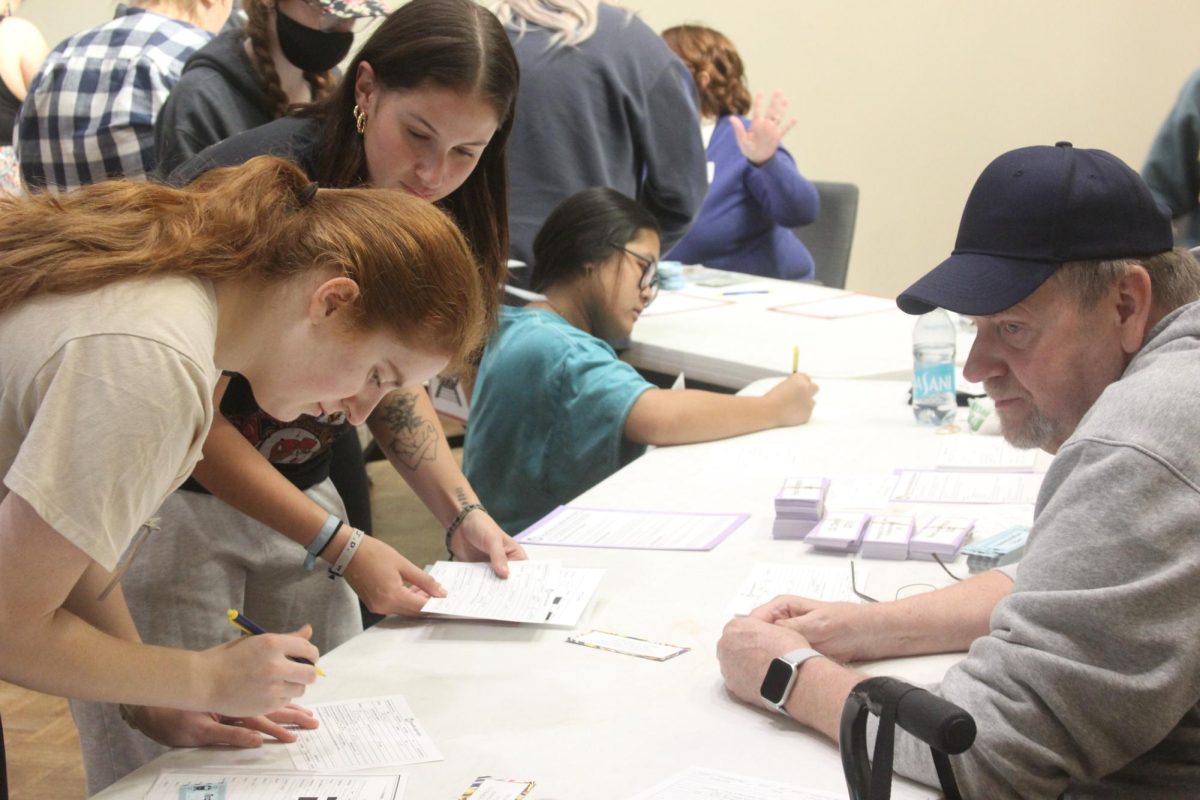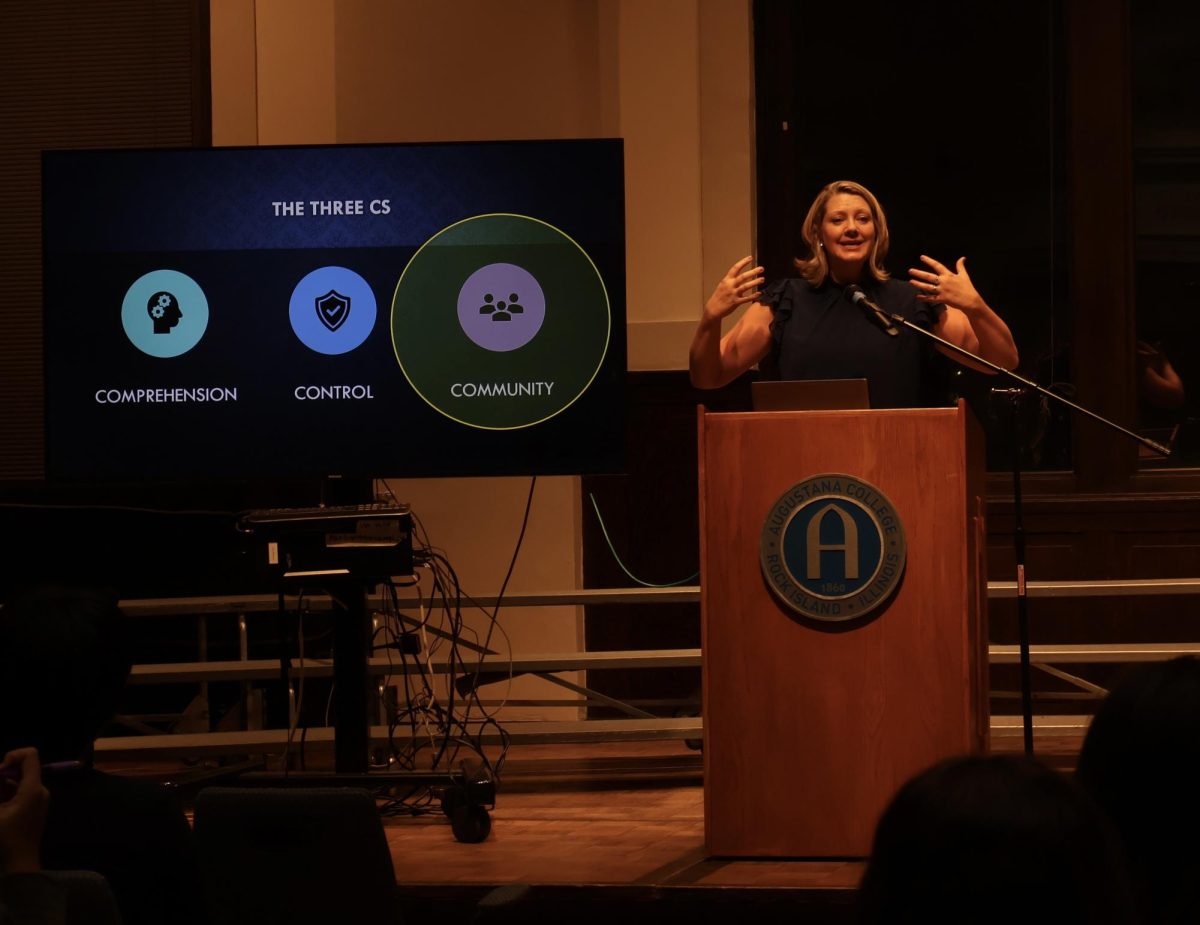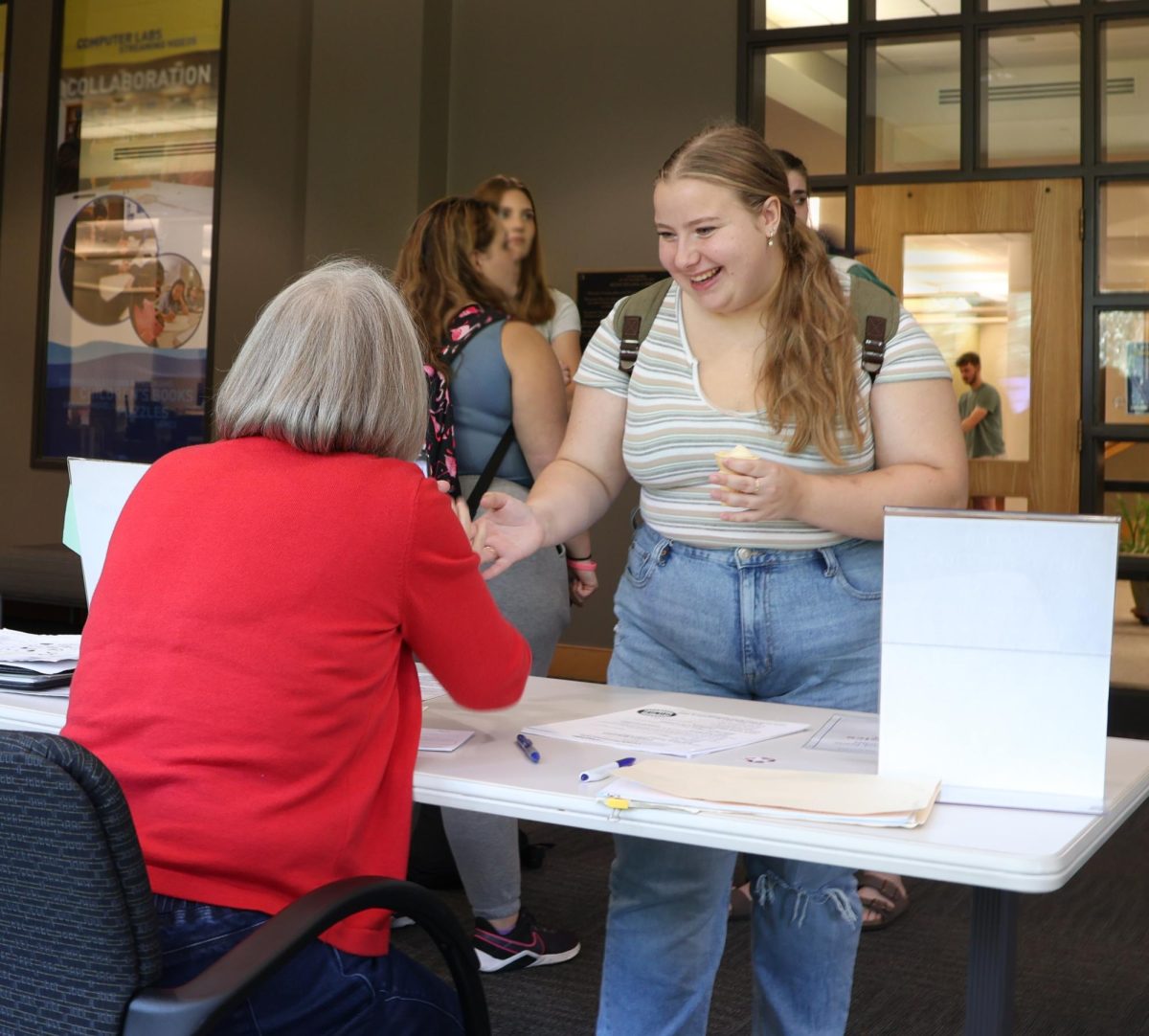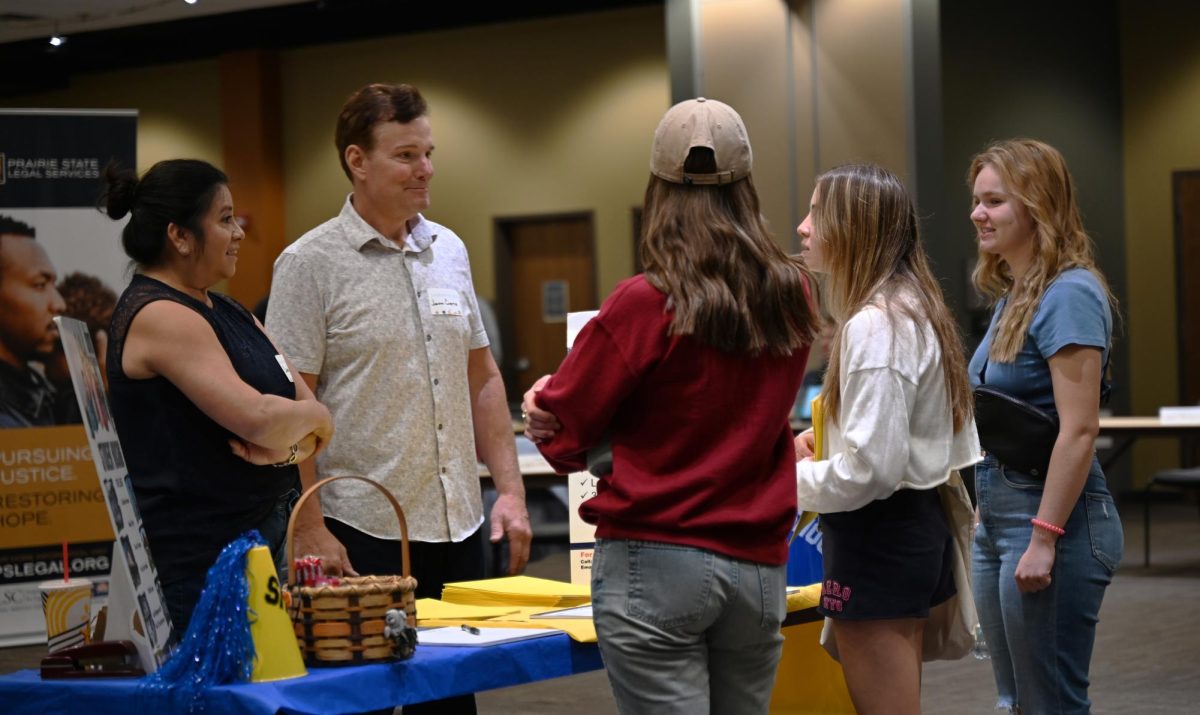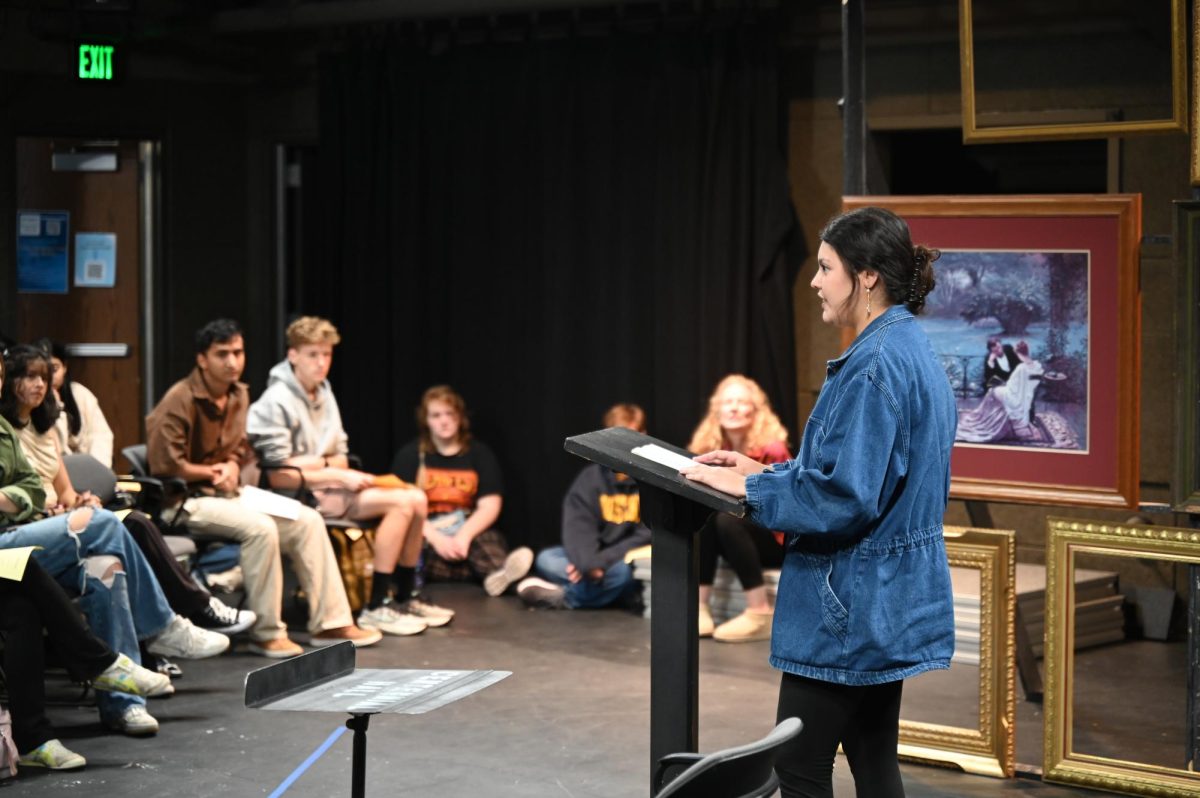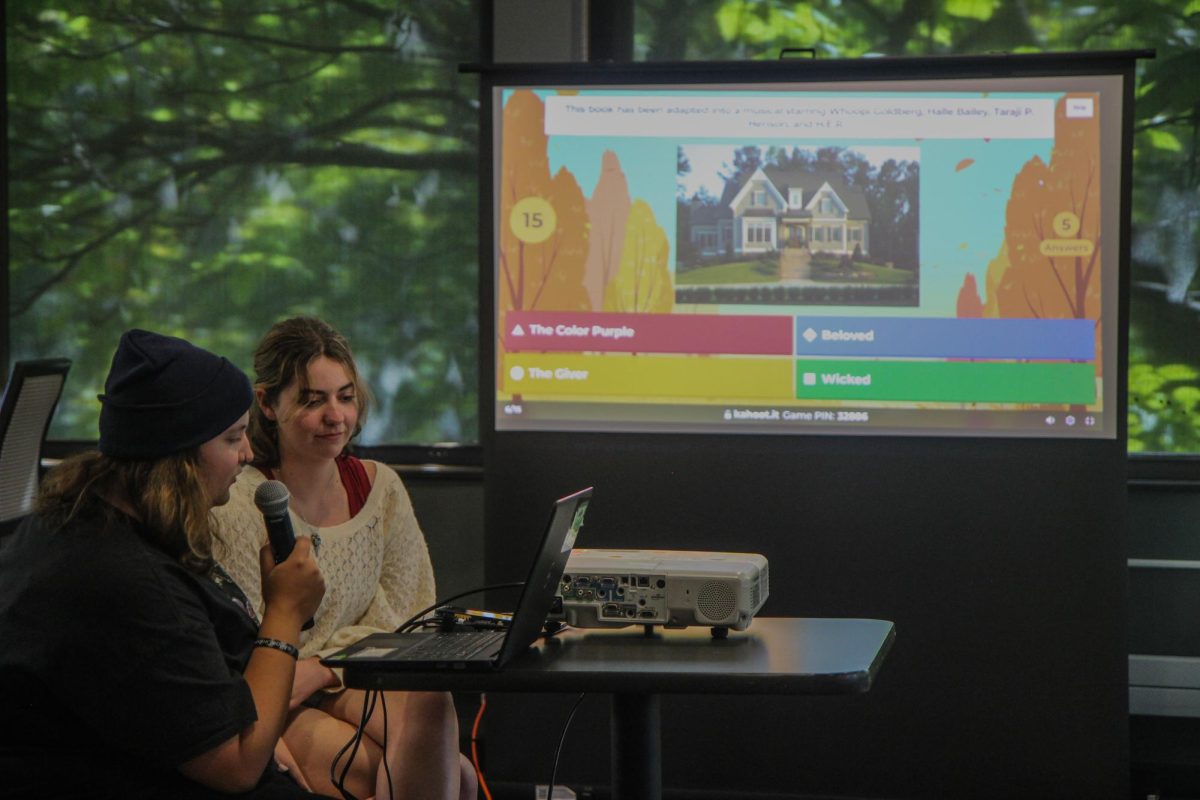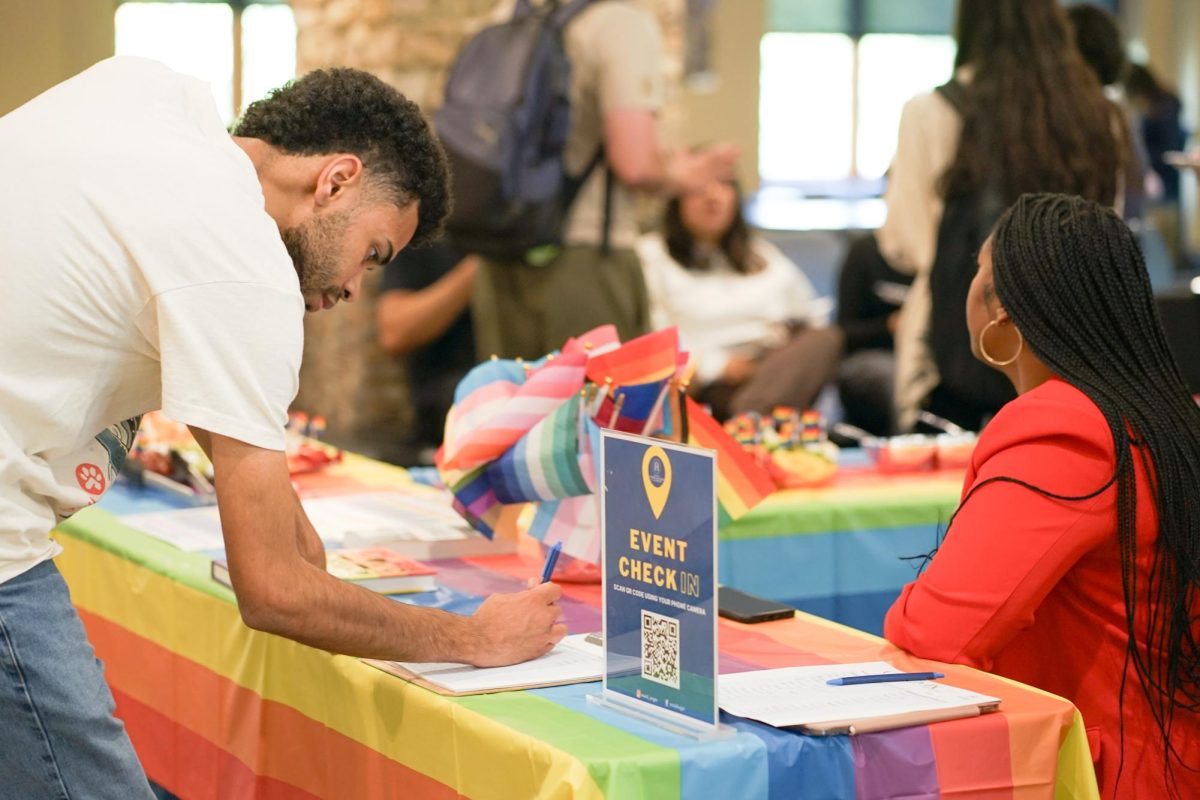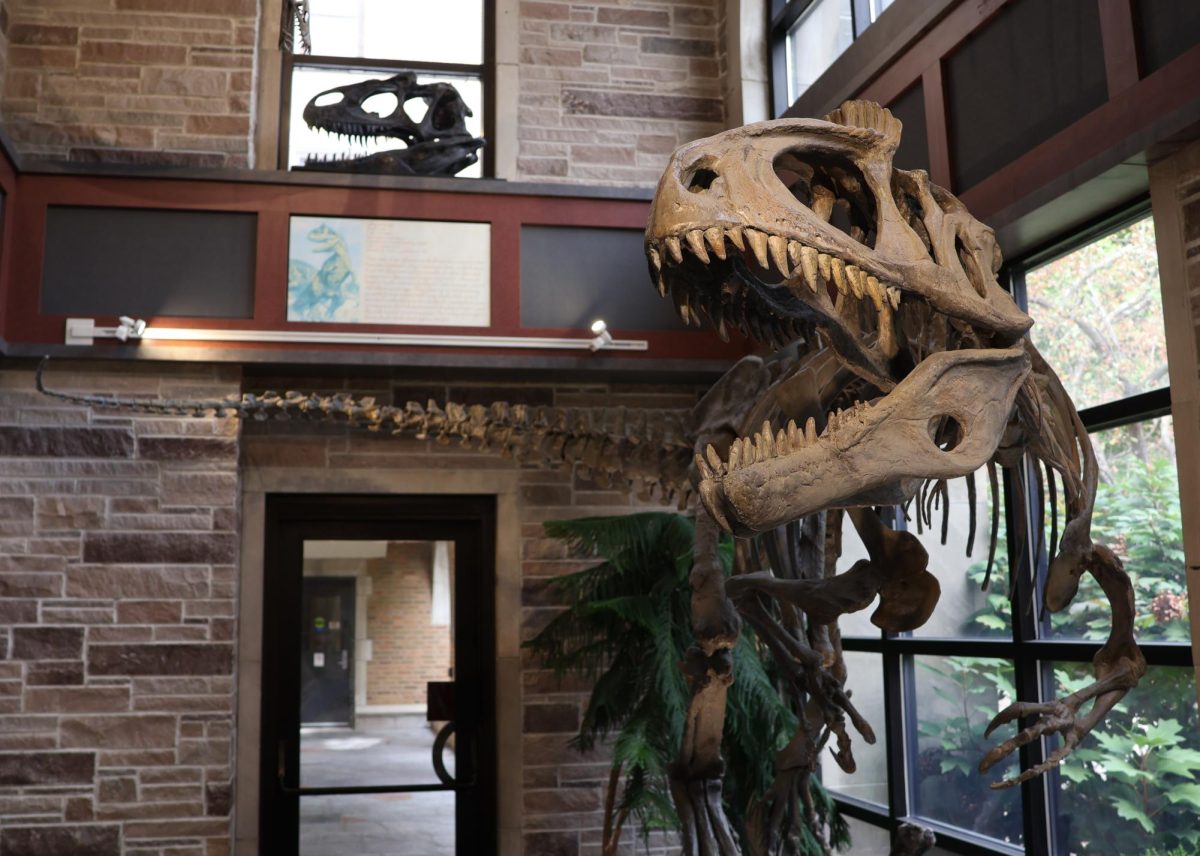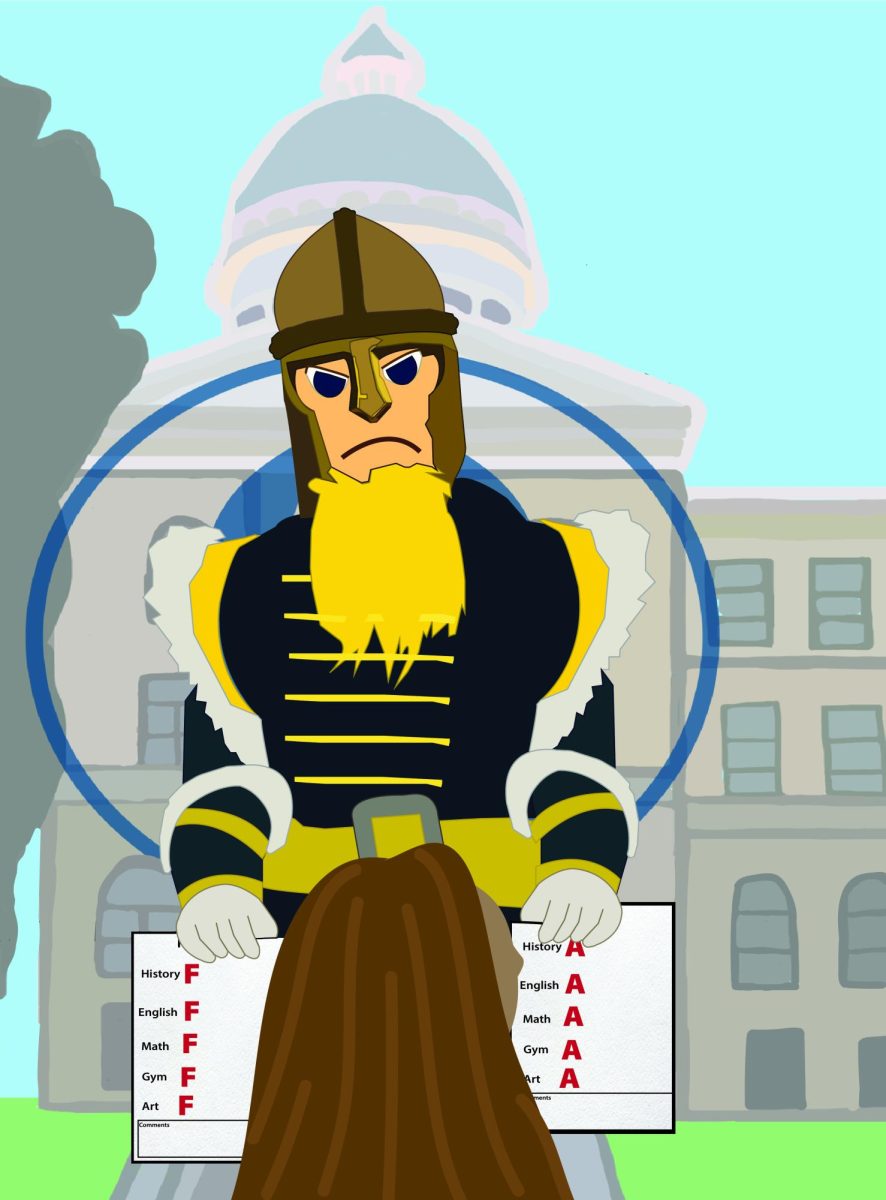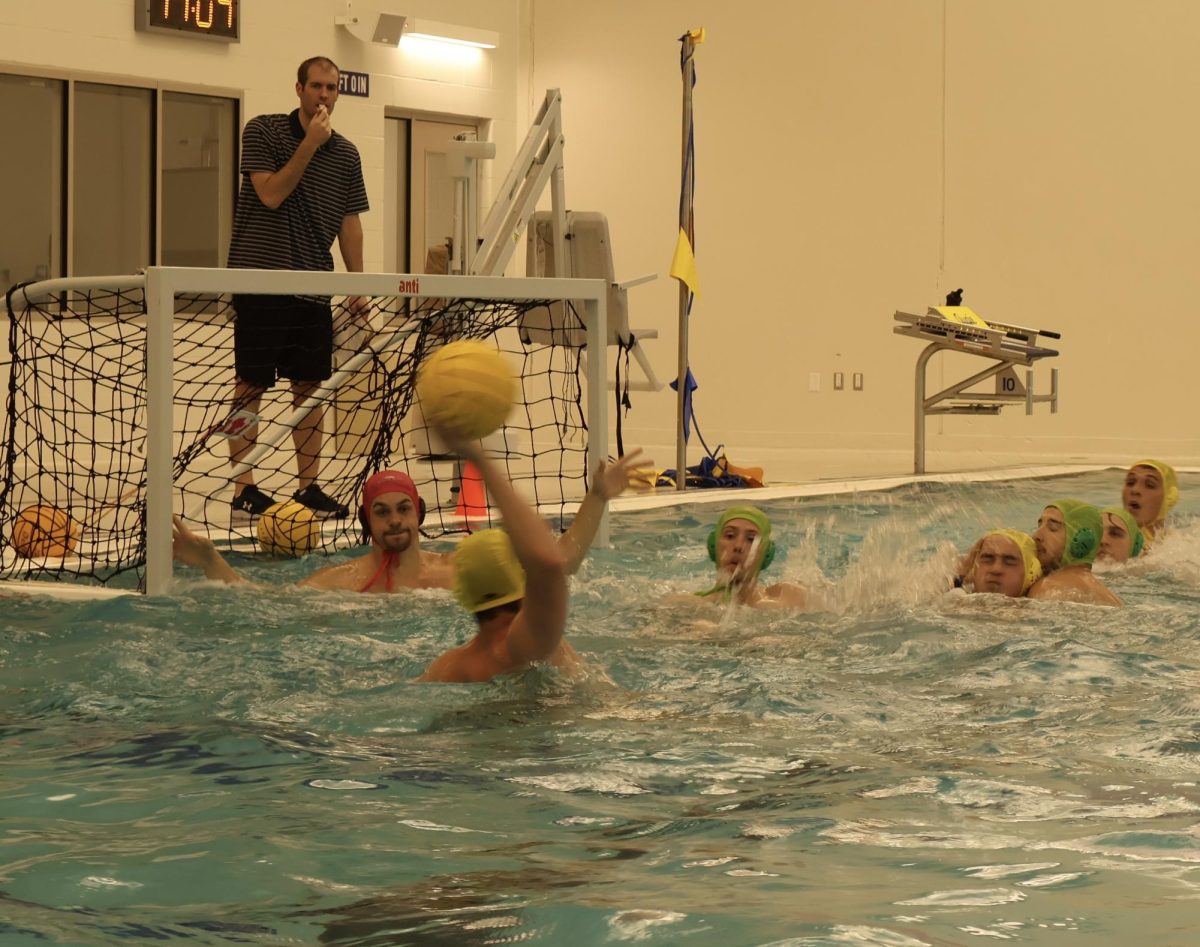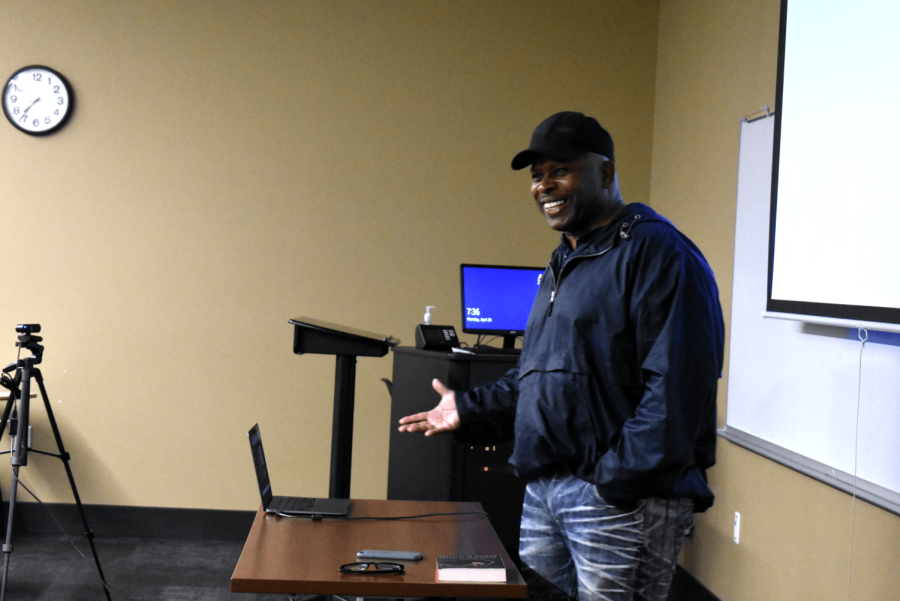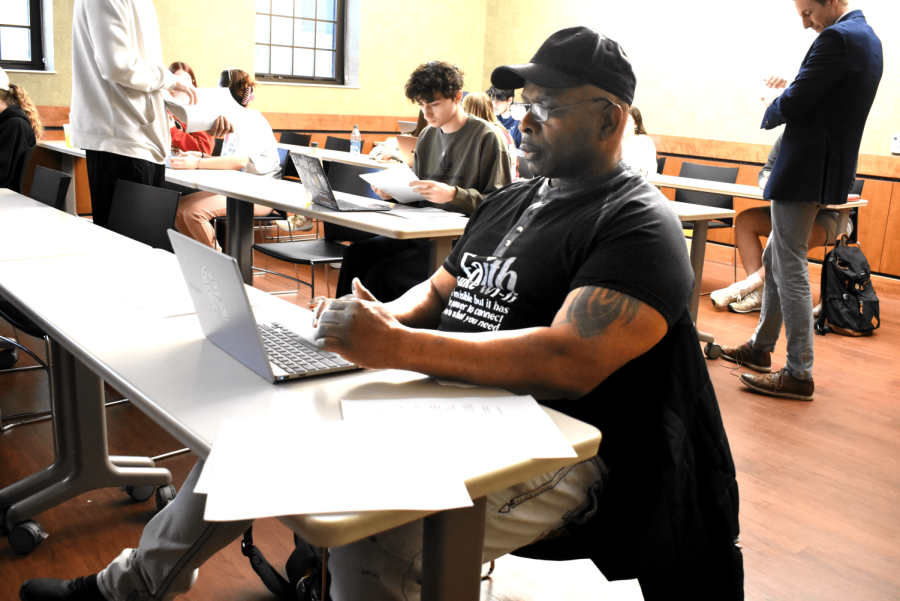From wrongfully convicted to exonerated Augie student
David Staples answers questions during a presentation about his experiences with APEP at Augustana College in Old Main room 132 on Monday, April 24, 2023.
May 6, 2023
Education can be a transformative and empowering tool used to help individuals regain control of their lives, an important opportunity for those who have been incarcerated. David Staples came across this opportunity through the Augustana Prison Education Program (APEP).
Staples was wrongfully incarcerated for 29 years. Before being released with the help of the Innocence Project, an organization dedicated to helping wrongly incarcerated people find justice, Staples participated in multiple education programs. Of these, APEP was the most recent.
“Entering into the program, I didn’t know what to expect. It was pretty strenuous and challenging, as you might expect of a college program,” Staples said. “Past that, I think the biggest part was adapting and adjusting to the men, even though we were housed in the same facility.”
Dr. Sharon Varallo is the executive director of the Augustana Prison Education Program and has been there alongside Staples to support his journey. In 2021, Augustana began courses for its first cohort of 10 men, chosen through an application process and interviews.
“Augustana is at the East Moline Correctional Center; it is a fully accredited second location of Augustana College. So it has the same course expectations, the same degree requirements,” Varallo said. “The Austin E. Knowlton Foundation is funding this program.”
When he entered APEP, Staples slowly made progress with his case and continued to push through classes.
“I knew during the program that the Innocence Project was working on my case,” Staples said. “I didn’t really tell the people at the program because I didn’t know how long it would take.”
After a lengthy process, Staples was exonerated and is now able to attend Augustana on campus. Currently, he is taking courses such as research methods, professional development, SOAN, social movement and psychology.
“The transition has been not one of coming to Augustana, but one [of being] integrated or reintroduced into society as a whole so that’s been working with challenges,” Staples said. “But for the most part, it has been a smooth transition.”
APEP allows incarcerated men at the East Moline Correctional Center to work towards a full-time Bachelor of Arts degree. Varallo hopes prison education will one day be a more accessible opportunity in correctional facilities around the country.
“We’re hoping nationwide there’ll be more opportunities because education raises all boats, people who get any kind of education in prison don’t go back to prison,” Varallo said. “It is absolutely the best thing we can do, I think for the country, to reduce mass incarceration and to provide dignity and hope.”
Varallo was Staples’ advisor and helped guide him through courses such as FYI-101. She first met him when he was admitted to the program during COVID, which was devastating for people in prison since there are only confined spaces available at most facilities.
“Being in a prison during COVID was dreadful. It was dreadful for the students who live in cells that on average in the United States, you don’t have six feet of space between you and another person,” Varallo said.
Another added stress factor Varallo pointed out is how prisons are not designed for education, but for deprecation. She believes it is necessary to implement more educational programs in prisons.
“Investing in higher ed in prison is not just investing in an individual, who is no better but no worse than any of us, it’s also investing truly in a country, in a community and helping families,” Varallo said.
Varallo also shares the difficulties of rehabilitation into society after prison. Many prisoners are sensitive to others since they have been harmed and negatively conditioned by prisons.
“They’re used to being used and manipulated, hurt,” Varallo said. “So it takes a strong act of courage to let that go and to trust that you’re in a different kind of space and be vulnerable. That’s what learning requires; it requires you to be human in a way that is rare.”
TY Stone is another student who received education through APEP while in the East Moline Correctional Center alongside Staples. Through their studies together, Stone was able to form new connections with Staples.
“Once we became classmates and peers, it became different because I was able to see a different person,” Stone said. “The genuine David Staples, he’s very caring. He’s very loving. He’s had some terrible things done to him, but he’s not bitter. He’s not envious. He’s not jealous. He has his mind set on becoming and being the person that he always knew he [was] supposed to be in the first place.”
Before APEP, Stone had been a student pursuing a major in computer science, a major he was able to continue as a student through APEP. Stone has since left the East Moline Correctional Center and will continue his education as a student on campus at Augustana.
“Now that I’m home, the teachers are still in communication with me, the school is still in communication in a way that they’re saying, ‘We want you here. We don’t want you in Chicago. We have everything here for you’,” Stone said. “With an institution like this opening their arms the way they are, why not take that opportunity and see what happens at the end of the road, and that’s for me and David.”
Both Stone and Staples explained the importance of having access to education while incarcerated.
They said that the option to receive education provides people who are incarcerated with the opportunity to recover and rehabilitate.
“Programs like APEP shouldn’t be privately funded; it should be a standard funded by the government. It’s necessary if you’re going to take people from society that at some point you have to return to society,” Staples said.
Staples returned home on Aug. 12 after being exonerated from the East Moline Correctional Center. Since then, he has moved from Chicago to continue his education as a student at Augustana. Enrolled for the current spring semester, Staples is pursuing a degree in psychology.
“One of the major things that drew me to psychology was self reflection. I want to know what made me tick, why was I strong when I saw so many succumb to the experience of what I went through,” Staples said.
His relationship with others in the program made him realize the problems within the prison system.
“In addition to that, I saw how guys were being absorbed by the system. I saw young guys being medicated when I felt that they didn’t need medication. So overall, I thought that maybe with my experience, my desire and this drive that’s in me, that I can maybe go back and make a difference,” Staples said.
Staples’ passion for psychology is very visible to his peers and professors, including Varallo. She recognizes that David shares an empathy towards people who are incarcerated and need counseling.
She believes that David is there to show prisoners someone is on their side and understands.
“It’s hard for me to know what he needs but he knows and he’ll get through it. And he’ll be there for others,” Varallo said.
Being in prison helped Staples realize he wanted to be there to understand prisoners and their health better. After being released from prison, his mentality on incarcerated people changed.
“What I’ve come to realize is that people are people. These are people who have families, who have people who they care about,” Staples said. “As for one moment, one moment in life is taken to define the rest of their lives.”
After graduating Augustana, Staples plans to continue his education through a masters program.
His hope is to go back and help with education in prisons, giving back to the community that gave to him. He has always had the hope and spirit to become more than his past.
“I did not want the fact that I spent nearly 30 years in prison to be my bookmark, my endnote, so I decided to make the chapter and complete the story as I wanted to be,” Staples said.
